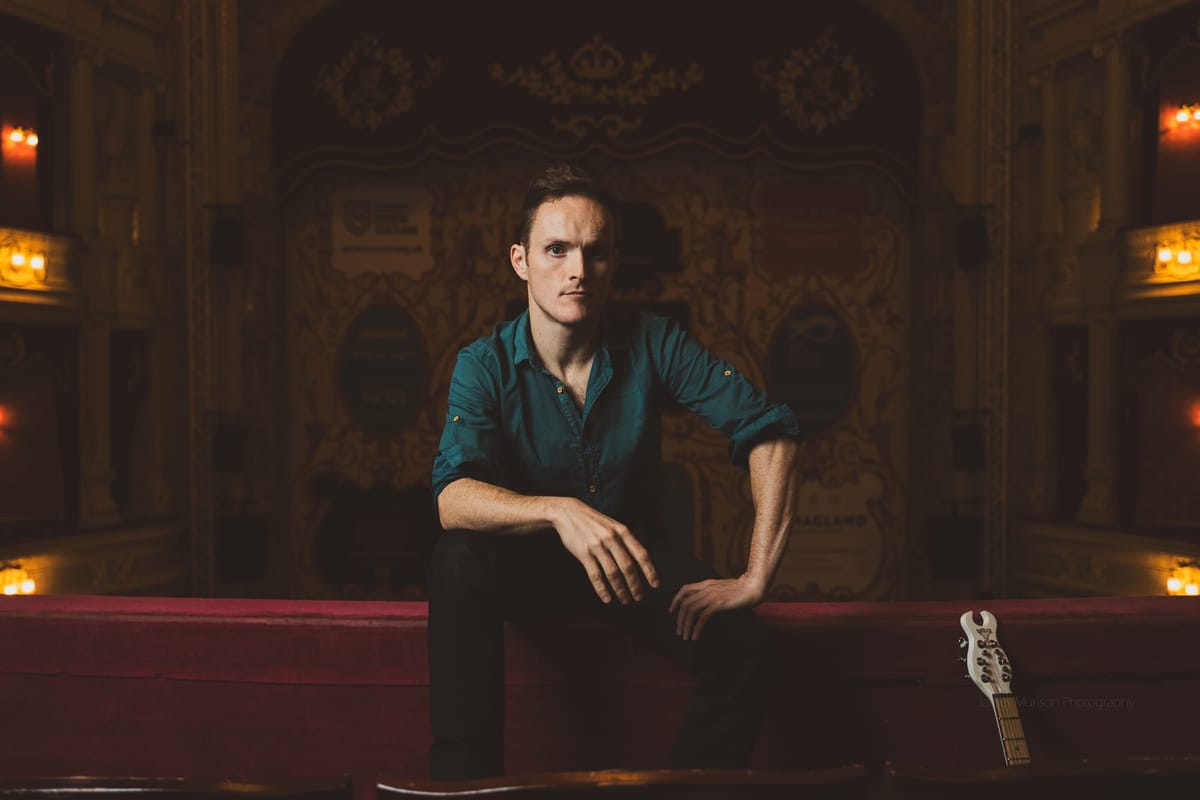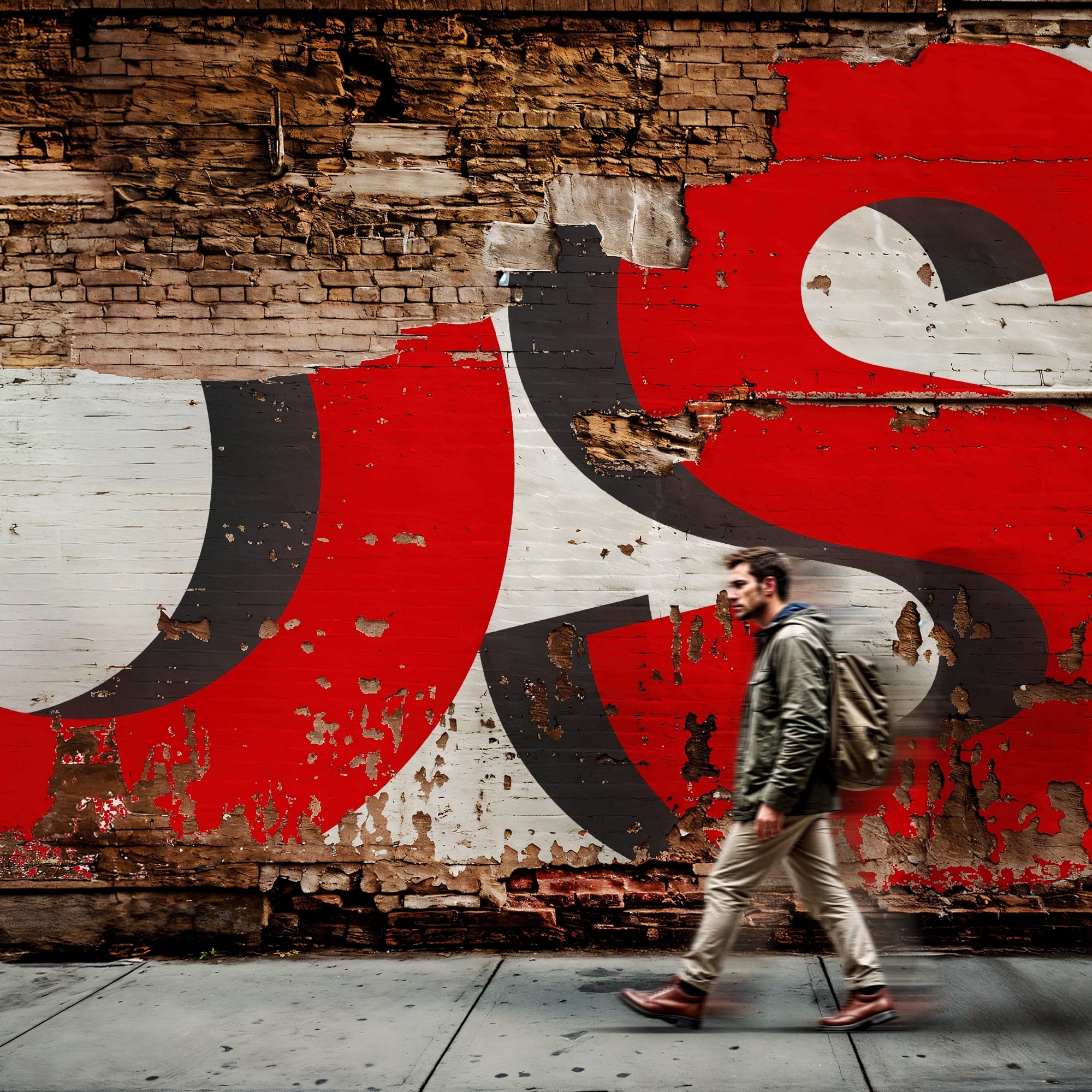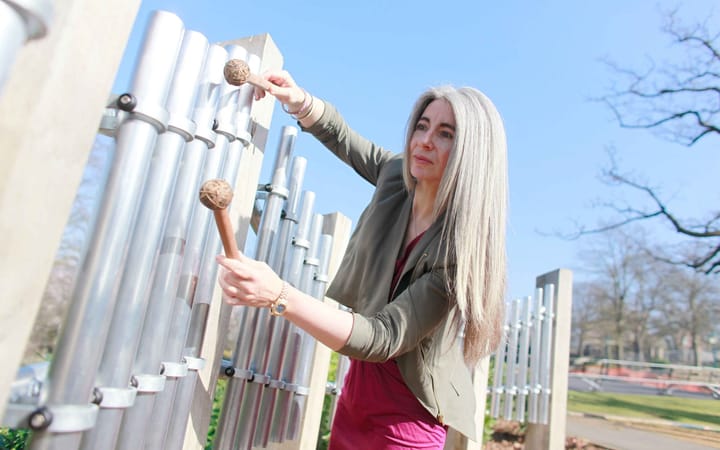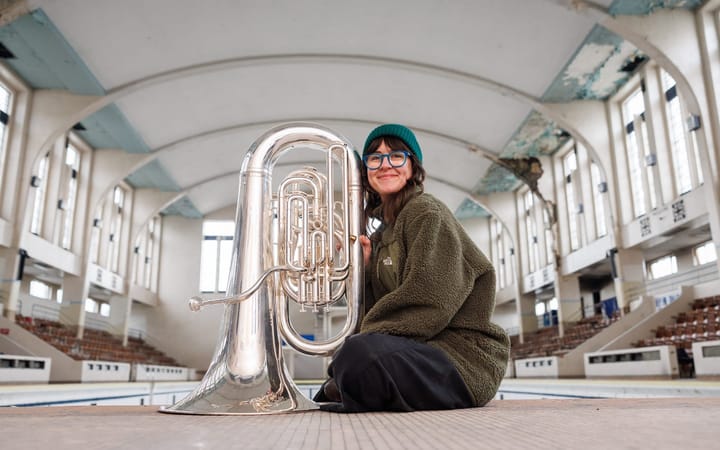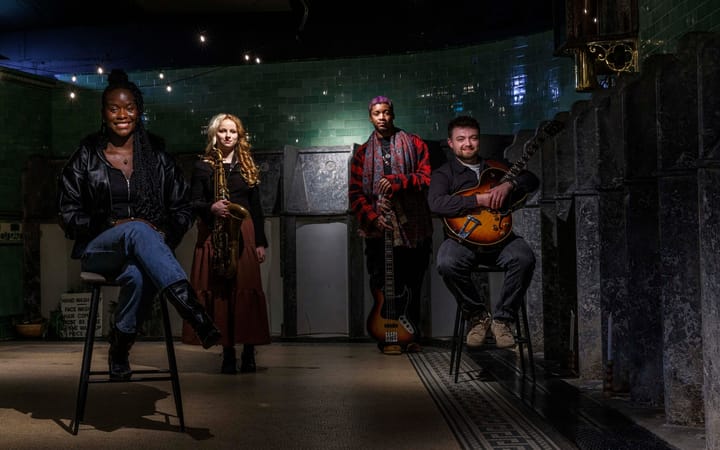Aberdeen musician recorded his first full-length album in village halls and childhood home.
Oliver Richard has been building something singular in Aberdeen’s music scene for over a decade - so much so that a POST subscriber got in touch to make sure we knew about his debut album. His sound is difficult to pin down: sweeping, cinematic arrangements that he performs solo, fusing what he describes as “bipolar electric guitar with angelic vocals, fat synths and tripped out percussion”. It’s rock with dark, gothic undertones. Deliberately plucked acoustic guitar that sometimes sounds almost like a harpsichord, layered into compositions you could imagine soundtracking a film.
It’s a one-man wall of sound that’s earned recognition from significant names. Tony Visconti, David Bowie’s long-time producer, selected Richard’s song “Approach Me Like A Lion” as winner of a global songwriting competition in 2018. Nick Cave spotted him in a crowd during a Scottish show in 2021 and later praised his cover of the Grinderman song “Star Charmer”.
Would you like to see your message here? Let's talk.
POST highlights Aberdeen’s creative scene, from theatre and music to visual arts. We focus on showcasing the city’s unique talent and supporting local voices.
Through stories, artist profiles, and event coverage, we’re here to share what makes Aberdeen vibrant. Sign up for free or support us and go ad-free for just £3 a month.
Nocturnal patterns
Noise From The Moon, released last month, is his first full-length album. The album’s origin story begins with hundreds of night-walks through the Scottish countryside.
“I was sliding into nocturnal patterns,” he says. “At that point in my life, walking into the night felt like a reprieve from the general mundanity of everyday living. I was working different part time jobs at the time, which I don’t regret, but most certainly didn’t want to be doing. Standing for 8 hours at a till, cleaning toilets, delivering garden supplies, turning petrol pumps on and off.”
Those walks became more than escape. “Journeying into the night was a way of walking out of my skin, and present circumstances, so to speak. I wasn’t conscious of this back then, but I often felt more like an animal when I was out there, but not in a sinister way. It was actually peaceful. I’d see other night-animals like badgers and bats, and sometimes I’d disturb sleeping deer or foxes as they sauntered about.”
Avoiding the hubub of the city
The contrast with rock music’s usual nocturnal associations wasn’t lost on him. “When you think about rock music, it usually goes hand in hand with the small hours of the night, but in an urban, greasy way. What I experienced felt like a subversion of that trope, as I walked in moonlit nature, away from the hubbub of the city.”
Richard now teaches yoga most mornings and can’t maintain those nocturnal patterns anymore. But he’s gained something from the distance. “I look back so fondly on that era. Nowadays, I also have enough self-reflection to know that physical movement helps me process my thoughts. I didn’t know that about myself back then, but it makes sense that I needed to walk in order to write.”
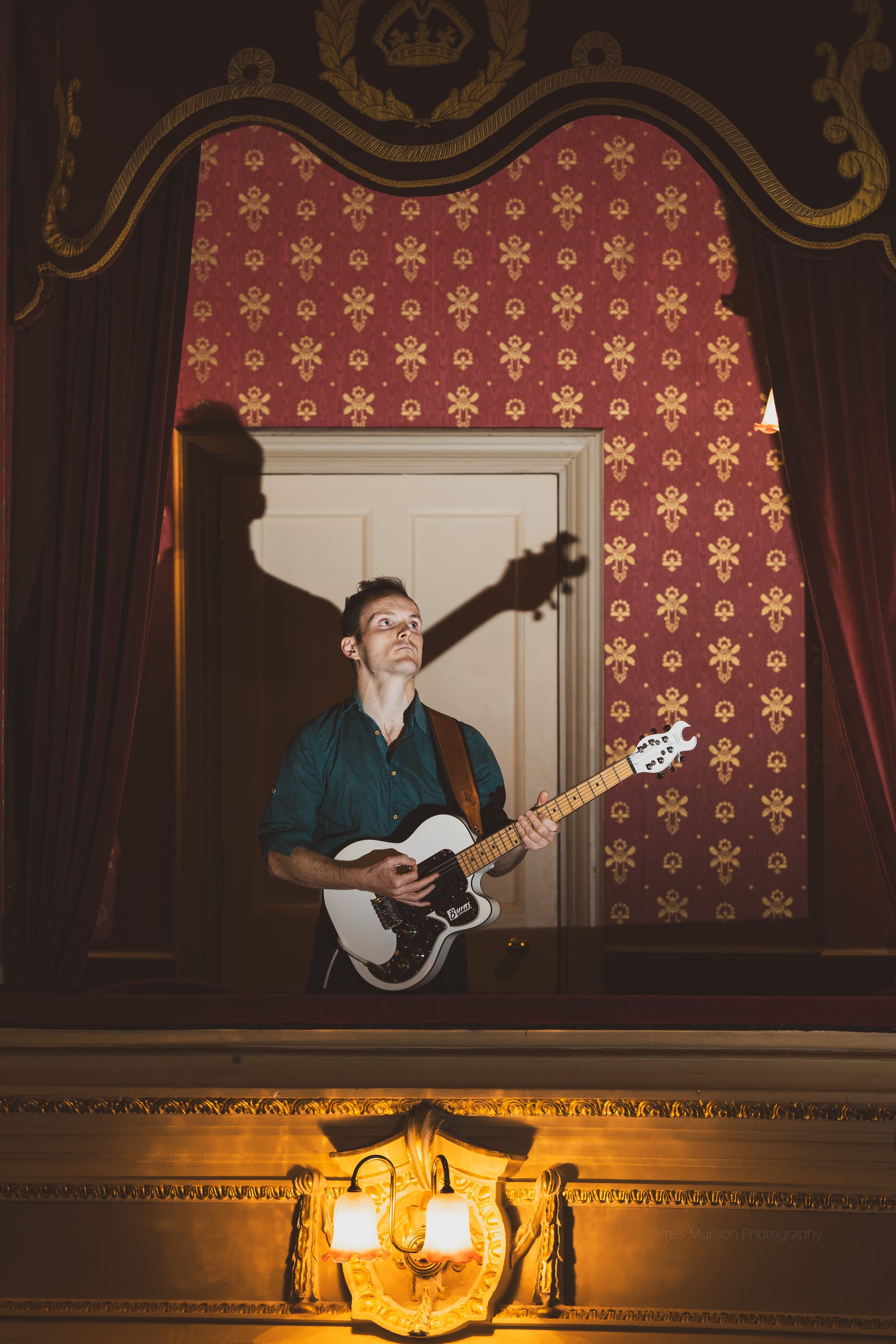
How location shaped his sound
Those night-time compositions were recorded between 2020 and 2022 in village halls, spare bedrooms and the corridors of his childhood country home. The locations weren’t just practical. They were essential to achieving the album’s massive sound.
“I recorded the album in a variety of manners, but most of it was old school: mic’ing amplifiers was a big part of that,” he explains. “Using my childhood home [and] the village halls allowed me to separate the amps by many metres, as well as set up microphones at different distances, and that helped make the record sound bigger. You don’t go to a gig and put on earbuds to experience it. There is a huge difference between hearing via headphones versus feeling it pour out of an amp. You literally get moved by the music and it becomes alive.”
Stepping away from band life
Richard’s path to this solitary approach wasn’t straightforward. He cut his teeth on garage bands and chamber orchestras, but both left him frustrated. “I always felt tense playing in them. I didn’t enjoy the pernickety, almost robotic approach to honing the music,” he says of the orchestras. The garage bands had different problems: “You always had at least one member who wasn’t really connected to what you were doing and that dragged the music down. As a fan, I used to be bitterly disappointed when bands broke up, but now I think I have a much better appreciation of why that happens. Frankly, I’m amazed when a group makes it past two or three records.”
Working solo became a way to control all the elements. “More than anything, it was something of a test – could I make an album by myself and be proud of the work?”
The guitar became his primary means of expression. “When I pick it up, it feels like I am fluently speaking my primary language. I don’t consider myself a very technical player, but I do think I have luckily found a direct link between how I feel and how I play. It’s as if there is no filter between those two areas anymore.”
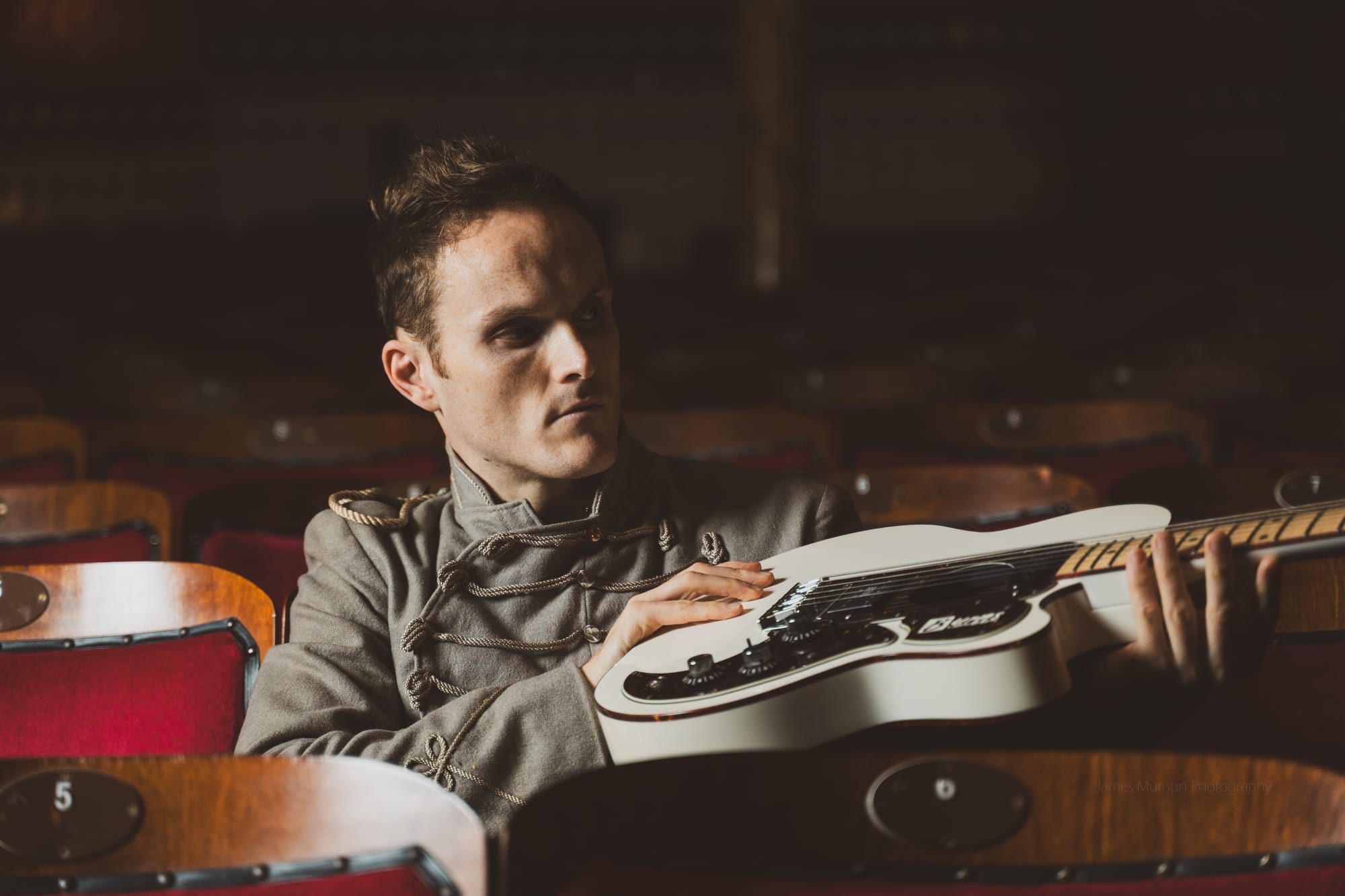
An excercise in humility
Richard has been working in Scotland for over a decade now, and he’s come to see the country’s constraints as liberating rather than limiting. Aberdeen, in particular, offers something that larger cities might not.
“Playing in Scotland is an exercise in humility. We are a nation of about 5 million, which is basically half of London alone. Just playing the numbers, there is less opportunity up here to find a following,” he says. “I know that many promoters and artists wouldn’t consider coming so far north. The logistics and economics put many off. I just accept that, and try to find the positive: when you have less eyes on you, there is less judgement, which can allow you to feel freer creatively.”
Working with no boundries
That freedom has allowed him to develop an idiosyncratic sound that’s hard to pin down. “It would be cool to play live six times a week, but with that, there’s more chance to feel the expectations of a building audience. In some way, I feel like a satellite operating at this end of the island, and that can be liberating. Scenes come and go, but when you are working outwith all that, you can go berserk with no boundaries.”
The Scottish landscape itself has left its mark on the album, though Richard didn’t realise it until after the fact. “Having been fortunate enough to visit far flung places around the globe I can honestly say that Scotland’s wildness and its capricious weather has not been bettered. I think we Scots often become blind to how astounding our country actually is.”
When he read back the lyrics from Noise From The Moon, he saw the countryside everywhere. “They’re filled with rain, rocks, mud, trees, stars and moonlight. None of that was intended when I sat down to write. It’s as if I was a conduit for larger themes with no conscious knowledge of what I was doing.”
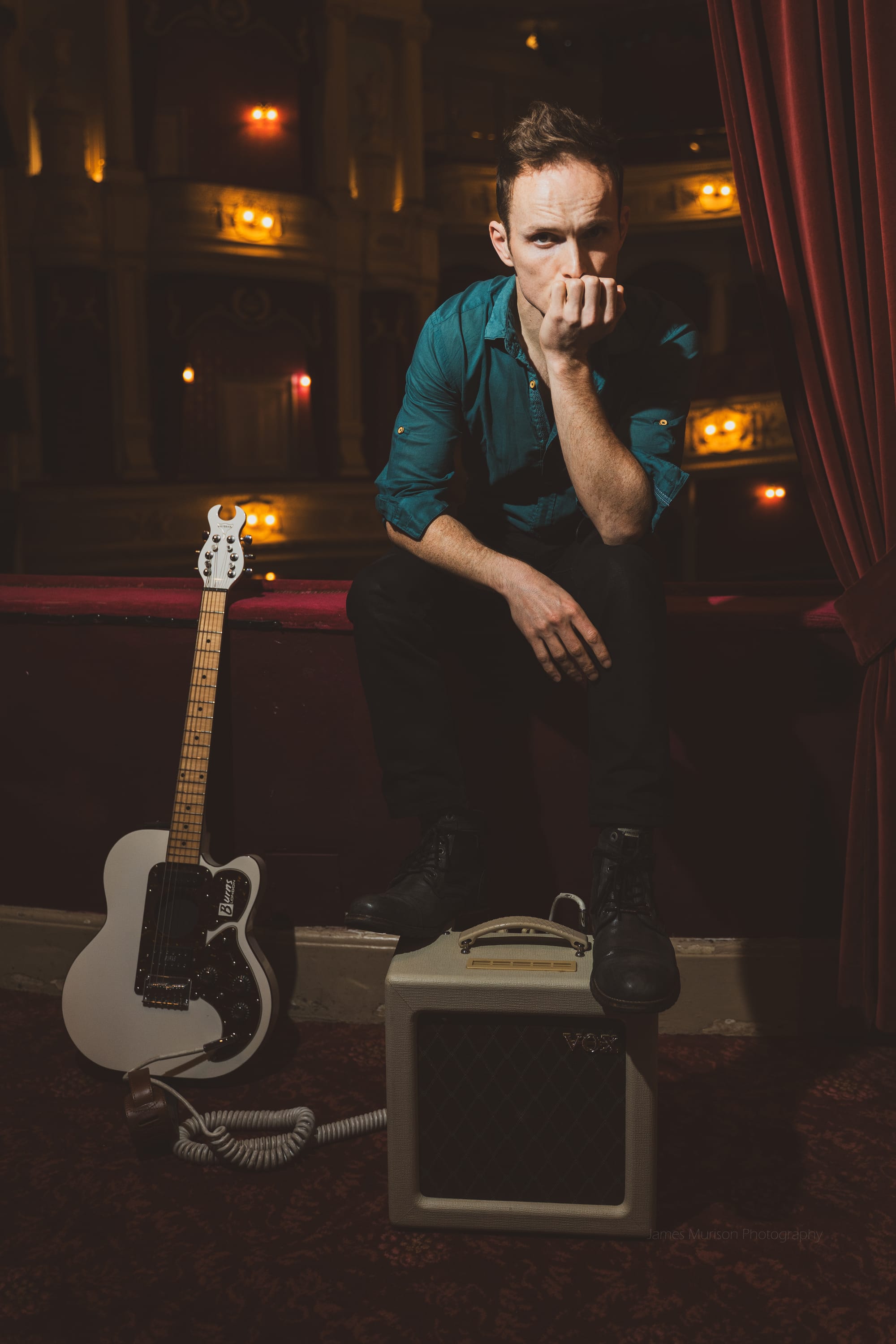
Pride in the work
The solo approach served its purpose for this album, but Richard doesn’t see it as the only way forward. “I don’t envisage this being the only way I’ll create for ever more. I hope that eventually I can bring other people into the creative process.” For now, though, the test is complete. After twelve years of singles and an EP, Noise From The Moon stands as proof that he could make an album by himself and be proud of the work.
Noise From The Moon is available on all streaming platforms now, with 12" vinyl available to purchase via Bandcamp. The album showcases Richard’s distinctive approach to solo performance, blending cinematic soundscapes with the raw intimacy of his recording process. Follow Oliver Richard on Instagram to stay updated on his work and future performances.


